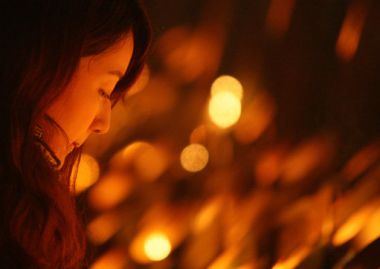Cross-party group lifts the lid on domestic violence and faith

The connection between religious faith and abuse is depressingly portrayed in the media every day. You'll have read the stories and seen the coverage. Paedophilia among priests in various part of the world, often on an industrial scale and then hushed up by the church. Or certain kinds of Christian groups where children are beaten, sometimes to death, in order to drive out evil spirits.
But there's a quieter form of abuse going on in churches and other faith communities which is probably more widespread. And statistically speaking it's almost certainly happening in your church. At a recent meeting of the Cross Party Group on Faith in the National Assembly for Wales, the topic under consideration was Women, Violence and Faith Communities.
Chaired by Darren Millar AM, a range of guests heard a presentation from Josephine Wakeling, training manager for the Christian charity Restored – ending violence against women. As a card carrying male member of the human race, her short address was disturbing. In laying out her case, Josephine cascaded a torrent of statistics.
• Globally, women between the age of 15-44 are more likely to be maimed or die as a result of male violence than through cancer, malaria, traffic accidents or war combined. (UN 2007)
• Domestic violence is the largest form of abuse of women worldwide, irrespective of region, culture, ethnicity, education, class and religion. (UN 2007)
• In the UK, two women a week die due to intimate partner violence. (Women's Aid 2010)
• In the UK a woman is assaulted in her own home every sixty seconds. (Day to Count 2000)
• In the UK 25% of women will experience domestic abuse at some point in their lifetime. (Home Office 2007)
Speaking of the last statistic Josephine said: "That's one in four women. Let me show you what that looks like." After a quick head count she asked four women in the room to stand up to illustrate her point. It worked. Domestic violence against women is everywhere.
Josephine then narrowed her attention to the role of faith and domestic violence. She revealed that many abusers are church goers and suggested that faith can be a 'conducive context' for domestic violence. She suggested that church culture often promotes the idea of male superiority and female weakness. She asked whether or not the concept of male 'headship' bolsters this feeling of superiority; a concept that all too often is unchallenged. My discomfiture was now pricking. Male, evangelical, part of a tradition with clear views on gender and now in the dock. Ouch.
Then came the killer blow. "Let's put it this way, said Josephine, "if God is male then male is God." She didn't expand on her statement; she didn't need to. The argument had been made: too many churches promote inequality of the sexes, creating opportunities for potential abusers. And the net result? Church leaders, male church leaders pretend there is no problem and turn away when faced with probable domestic violence in their congregations. "Gender inequality is both a cause and consequence of violence against women," according to Josephine.
But all is not lost. Restored works with churches in identifying the tacking the problem of domestic violence. Leaders are encouraged to model and promote equality in relationships. Also there needs to be greater signposting of domestic violence through use of publicity material and encouraging victims to report these matters to their leaders and for these leaders to follow through on these reports.
National Director of Evangelical Alliance Wales, Elfed Godding said: "All the major church denominations now recognise the seriousness of this issue and are addressing it through training and advice on best practice."
For the sake of the one in four, churches need to lift the embargo on their scandalous silence and let the victims speak.











